Leaky gut in dogs, what is it? It may look like dysbiosis (diarrhea) or a sudden allergic reaction, but you may be surprised to know that this is a syndrome your pet has acquired over time. If your pet is a victim, read on as we discuss the causes and how to treat leaky gut in dogs.
What is leaky gut in dogs and can it be healed?
Leaky gut syndrome in dogs, a condition where the intestinal lining becomes compromised allowing toxins and bacteria to "leak" into the bloodstream, can indeed be managed and often healed with appropriate care.
The phrase seems like a new trend, but it’s been known for decades. Leaky gut is what happens when the intestinal lining becomes permeable. This can happen to dogs and cats. A leaky gut allows harmful bacteria, toxins, and even food particles to seep through into the bloodstream.
Leaky gut is what happens when the intestinal lining becomes permeable, causing it to "leak" into the bloodstream. This can happen to dogs and cats.
Is it a symptom or a syndrome?
Leaky gut is a bit controversial. It's not certain whether it is a cause or rather a symptom of other underlying health problems. What experts do agree upon is that intestinal permeability is real and it’s something that needs to be addressed in pets.
Possible signs of leaky gut
In fact, leaky gut is correlated to many common pet health dysfunctions. A common symptom of leaky gut is chronic diarrhea, but can also include digestive discomfort, arthritis, chronic inflammation, and skin issues. Your dog could appear to have food allergies. It’s a chronic problem that can lead to a host of acute onset conditions, so, learning how to protect our pets from this problem very important.
Leaky gut is a chronic problem that can lead to a host of acute onset conditions in dogs and cats. Often time, it can be managed with the right diet and lifestyle adjustments.
3 Triggers of Leaky Gut in Dogs and Cats
With leaky gut, the digestive stress that damages the intestinal mucosa has 3 main triggers. Identifying the main diet culprits is the first step towards getting our dogs and cats healthy again.
1. Antibiotics and medications
The highest concentration of healthy bacteria lies in the gut, and for good reason. When this delicate balance of intestinal flora is destroyed through antibiotics (either necessarily or unnecessarily), the intestinal lining is compromised and your pet is more vulnerable than ever to developing a leaky gut, and even a leaky bladder!
Unnecessary steroids, NSAIDS, deworming treatments, and flea and tick medications can contain harmful pesticides or generally disrupt the microbiome of your pet. Use with care and caution. When needed, counteract with some of our leaky gut protectors, see below.
Read: What to Do After Antibiotics?
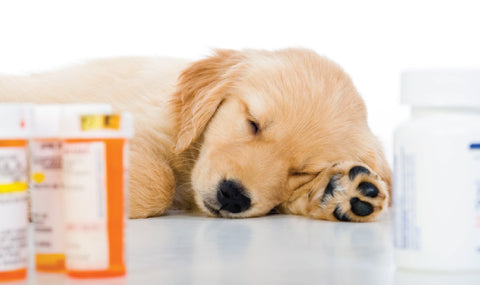
2. Food additives
Sodium, gluten, and thickeners (gravies) are totally unnecessary for dogs and cats and will harm your pet’s health in a matter of time. It’s not uncommon to have a perfectly (seemingly) healthy animal for a while, and then they’re suddenly allergic to many foods, even healthy foods that they used to eat without issue.
3. Grains and modern diets
Pets' digestive systems are not naturally equipped to break down complex carbohydrates found in grains. Dogs and cats, much like their wild counterparts, thrive on a diet primarily composed of raw meat. In the wild, any carbohydrates consumed typically come from the stomach contents of their prey, already broken down by natural enzymes.
Feeding your dogs processed grains forces their bodies to redirect enzymes from other functions to digest these foods. This can lead to undigested food fermenting in the gut, causing irritation and damage to the intestinal walls over time. This strain not only affects their digestive health but also impacts their overall metabolic processes, further harming the gut lining.
While some pets might seem to tolerate grains without immediate issues, their digestive systems can eventually reach a breaking point, signaling a need for change. Integrating enzyme supplements into your pet's diet can support their ability to break down grains and processed foods more effectively, helping to prevent gut irritation and maintain their digestive health.
How to Manage Leaky Gut in Pets
Fortunately, leaky gut syndrome in pets can often be managed, and it's even possible to prevent the condition from developing in the first place. Your veterinarian may have a protocol in mind, including the use of prednisone or other anti inflammatory drugs. Here we'll explore natural remedies to support your pet's digestive health and guard against chronic issues like leaky gut.
1. Protect the gut with probiotics and enzymes
Probiotics
A positive way to heal your pet's gut is to supply healthy bacteria daily. Probiotics are not just for sick animals, they are a wellness supplement that should be given every day to maintain a healthy intestinal lining.
Probiotics serve on the front line for leaky gut defense. Probiotic Miracle® provides a comprehensive blend of probiotics plus prebiotics to help heal the body.
Animals with damaged intestinal linings can often recover with appropriate probiotic therapy. Administering probiotics can lead to improved allergy symptoms and fewer digestive problems in these animals. It also serves as an excellent preventive measure against the development of leaky gut or further damage to the intestinal lining. For dogs or cats already affected by leaky gut, providing a substantial dose of probiotics both in the morning and evening can be particularly beneficial.*
Enzymes
Animals with leaky gut are under digestive stress. Even when fed a healthy diet, raw or cooked, there is bound to be some toxic triggers that bother your pet, namely, undigested food particles. Enzymes offer an insurance against leftover food being stuck, lodged, or fermenting in the body and irritating the gut. An appropriate multi-enzyme formula, such as Enzyme Miracle® is a perfect compliment to every meal you feed your pet and supports complete digestion. The plant-based enzyme blend is gentle yet powerful and supports both digestive and metabolic processes.
Supplemental enzymes offer an insurance against leftover food being stuck, lodged, or fermenting in the body and irritating the gut.
The probiotic/enzyme combination is something we talk about a lot because it's so helpful for providing a foundation of wellness to dogs and cats. For this reason we offer the Miracle Pack®, a bundled package of Probiotic Miracle® and Enzyme Miracle®.
Read: Enzymes, Benefits Beyond Digestion
2. Support intestinal tissues with omega-3 and amino acids
Strengthening and supporting the structure of the soft tissues is an important factor in intestinal health. To repair and rebuild the intestines, L-glutamine and other amino acids, as found in Dermix™ chews, are known for their ability to support soft tissues.
Additionally, essential fatty acids (EFAs), like lecithin and omega-3 from fish oil further work to protect the cells and fortify the body overall. EFAs are known to help produce substances called eicosanoids that help to balance out and modulate the body’s natural inflammatory responses. Managing inflammation is very appropriate for these gut inflammation issues.*
3. Remove Food Triggers
Diet is crucial for our carnivorous pets, especially those facing health challenges. Adopting a grain-free, raw meat diet is advisable to support their well-being. However, it's important to remember that even healthy raw meat may carry toxins, herbicides, and pesticides. To safeguard your pet's bowels from irritation and offer protection against these harmful substances, incorporating probiotics, enzymes, and amino acids into their diet can serve as an effective measure.
If you’ve been worried about your pets’ digestive health, or possible leaky gut, stop worrying and take action steps to help your dogs and cats thrive.
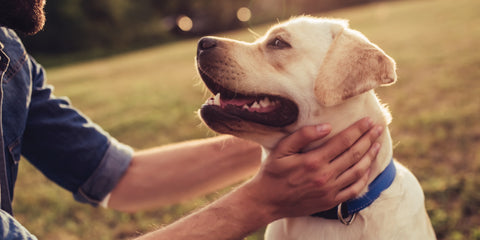
Conclusion
Leaky gut in dogs is a complex condition that can mimic or lead to various health issues, from dysbiosis and allergies to chronic inflammation and more. Understanding the triggers and addressing them through dietary changes, such as removing grains and incorporating enzyme supplements, can make a significant difference. Probiotic and enzyme therapies not only aid in healing damaged intestinal linings but also serve as a preventative measure against future issues by maintaining a balanced gut flora and ensuring complete digestion of food. By taking proactive steps to protect and heal your pet's gut, you can support their overall health and prevent the onset of leaky gut syndrome. Remember, it's not just about treating symptoms but providing a foundation of wellness that supports your pet's digestive health and well-being for the long term.
REFERENCES
Alterations in intestinal permeability. M C Arrieta, L Bistritz, and J B Meddings. 2006 Oct; 55(10): 1512–1520. Abnormal Intestinal Permeability Could Play a Role in the Development of Gluten-Sensitive Enteropathy in Irish Setter Dogs
Edward J. Hall Roger M. Batt. The Journal of Nutrition, Volume 121, Issue suppl_11, 1 November 1991, Pages S150–S151, Intestinal permeability and autoimmune diseases. Megan Ciarra Smith. Bioscience Horizons: The International Journal of Student Research, Volume 10, 1 January 2017.
Intestinal permeability testing in dogs with diet‐responsive intestinal disease. H. C. Rutgers R. M. Batt E. J. Hall S. H. Sørensen F. J. Proud. July 1995.
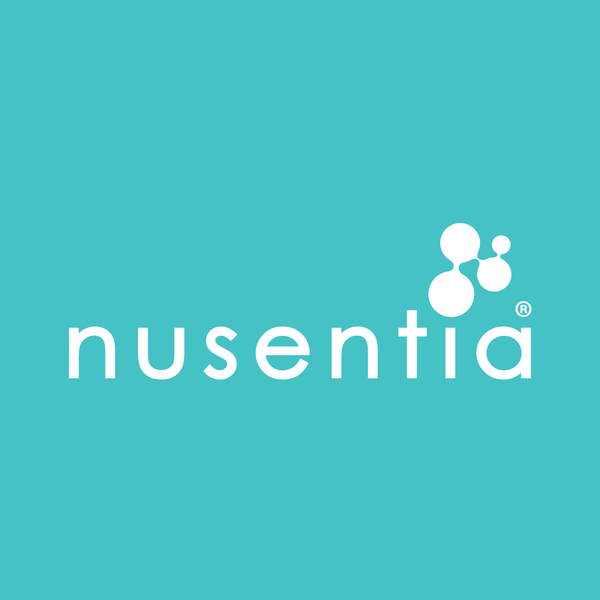

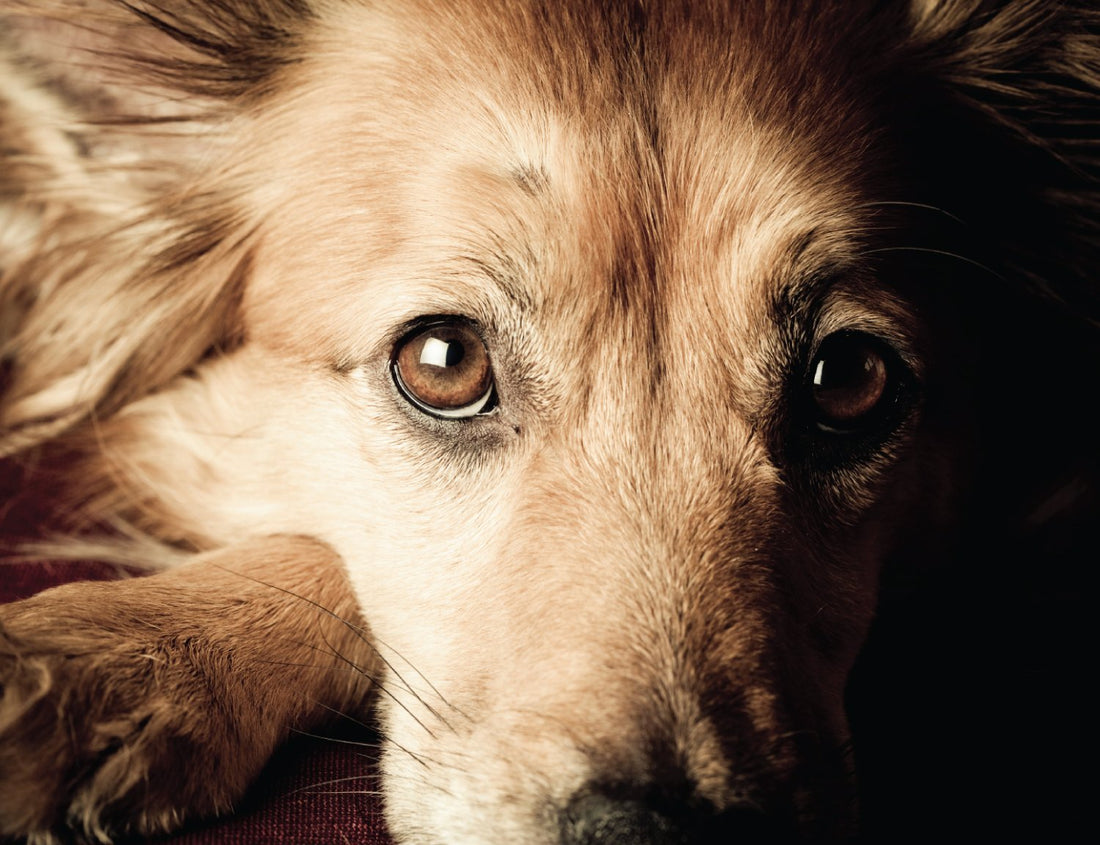
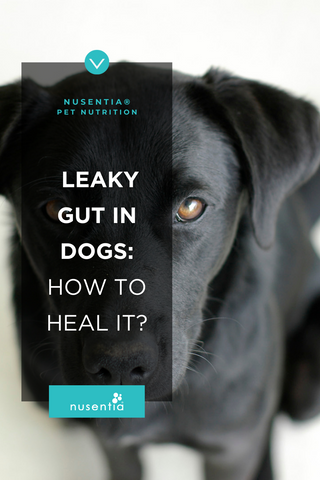
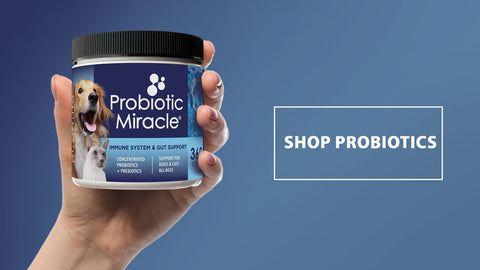
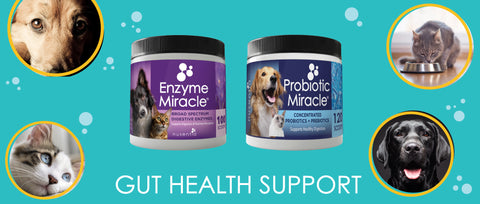
1 comment
My dog has a lot of chronic allergies. I had blood work done three years ago for you know food, allergies and then I even had one done by Glacier Peasticks people tell me they are accurate. They’re not accurate anyway the dog was diagnosed with Sybil, which is small intestine, bacteria, overgrowth and I don’t know if you know anything about this there’s only certain strains of probiotic she can give them I’m reading where
Some prebiotics and probiotics can actually feed SIBO which is small intestine or bacteria overgrowth he’s itching and scratching a lot and with that being said a company animal biome said that he does have an imbalance in his gut so with all that being said, what can we do to get this German Shepard where he needs to be again as I said he has SIBO and leak he got not sure if some of the foods he’s eating he’s allergic to try my best but actually I wanted to give him one that’s hydrolyzed, but it has a lot of carbohydrates which they say that will feed SIBO so that food is not gonna work even though it’s a hydrolyzed single ingredient hope youse can help me with this. I feel like I’m running into a wall